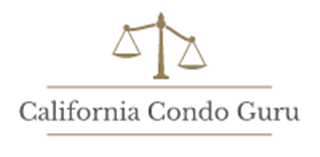ELECTIONS / MODEL ELECTIONS RULES/SAMPLE

Arrrrrrgh… Here we are after the first full year after which the election law for HOAs was completely revamped, and probably 99% of the HOAs in the state don’t even know it (“it” being that the law was completely changed in 2006-2007). And of the 1% that know it, well, ….there certainly have been problems. But we all need to keep plugging away at the procedures until we get it right.
To that end, here is a sample outline for good election rules that helps understand the thought process behind them (and all HOAs are required to adopt election rules by the way). Keep in mind that the election rules have to be circulated to the owners for comment before the Board approves them per Civil Code Section 1357.100 but that does not need to hold up the election. The two can be accomplished simultaneously if you fully understand the legal requirements.
[Short Model For] BASIC ELECTIONS RULES
Introduction: Start the rules out with a paragraph explaining that they are adopted pursuant to a statute, i.e., Civil Code Section 1363.03. This should allay any suspicion of motive on the part of the Board, as owners sometimes assume. This is the only paragraph that you can safely construct on your own, without legal ramifications!
Nominations/Qualifications For Candidates – These should be taken from your governing documents, usually the bylaws, and might include, by way of example (warning: do not go beyond the governing document authority on qualification requirements):(1) must be an owner,
(2) must be in good standing,
(3) must have certain educational requirements,
(4) must not be one of two candidates in same household, etc. Since the law allows anyone to self nominate, the rules would need to address how/when to disqualify an owner who nominates himself/herself but is not qualified to serve.You will need legal guidance on this. The governing documents play an important role. Associations that have abused this have already had their elections challenged.
Meetings — If your governing documents call for an election of directors to take place at an annual membership meeting, that is the time to conduct balloting, either by sending the ballots out at least 30 days before the meeting and counting them at that meeting, by allowing nominations and extending the voting beyond the meeting, or by preparing members at that meeting for an upcoming mailing/distribution of ballots, taking nominations and, if a “contested election” (more candidates than open positions), sending the ballot out after, to be counted at a later board meeting at least 30 days out.
Candidates — Equal Access If Given To Any: Candidates are guaranteed equal access to Association facilities if any is given to any candidate. Different parameters may be adopted for mailings, media, websites, clubhouse, newsletters, and posting boards. The statute does not guarantee unfettered access to any candidate. You should seek guidance on how to set reasonable limits on access. You could incorporate it in the rules, or decide prior to each election and keep the rules generic, simply guaranteeing equal access.
Qualification For Voting/Voting Rights: You will need to state the voting rights in your association which may be allocated on a per lot/unit basis, a square footage basis, or an ownership interest basis, or a combination of any. Again, the governing documents are important. Since there are at least 4 types of elections covered by this statute, you could also determine now and state the different requirements for the different types of elections covered by the new law which are: assessments that exceed the legal limits, amendment of governing documents, election (and removal) of directors, and transfer of exclusive use of common area to members. Each of these subjects has different voting requirements under the law. And you may or may not want to include all association elections in these processes so it is important to discuss these things with a knowledgeable association attorney that can guide you as to changes in the new law.
Quorum – You will need to specify the quorum for director elections, and note that there is a different quorum for other elections, such as assessment increases above the legal limits (dictated by Civil Code Section 1366) and transfer of common area (dictated by Civil Code Section 1363.07), etc. Pay attention to whether the documents allow for a lowered quorum at adjourned annual meetings and know how to access this if you need it (consult with knowledgeable legal counsel).
Specify the Method Of Choosing Inspector(s) – The Board needs to decide how to choose the independent elections inspectors. There are two ways: allow the members to vote on them or appoint them. Logically, board appointment works better than election. Understand also that it is not easy to find inspectors of election in the outside world, yet, and get some guidance for options from the right professional. Associations may use a member of the association who has no relationship of any kind to any candidate but doing so presents its own challenges. And Associations may use association vendors (like the manager or CPA), but only if the elections rules say so. Choosing inspectors is important so seek knowledgeable legal counsel on this. And you will want to find qualified people to serve this function, not someone who will balk or bolt in the face of adversity. And there are many more questions that need to be answered for each Association:
- Do you want to do away with the annual membership meeting or not? You may have a choice if you use the new law (but your governing documents control on this aspect). If there is no annual meeting in years to come, will it ruin the chances of every getting sufficient owner interest and participation to fill the Board and Committee positions? This is a critical concern for each Association!
- Proxies – Do you still want to use them, or not? Most HOAs would like to do away with them, but it requires a document amendment if your documents provide for proxies. You will need help on this.
- Notice of meetings and voting processes – How do you determine opening and closing of “polls”?
- Ballot process – using the double envelope mail system – what happens if owners do not follow instructions? You can prepare for this, with good help.
- Nominations from the floor – Should you allow for them at a meeting or eliminate them? You will need help to determine the best way to deal with language in the Bylaws on this.
- Cumulative voting – How do you handle this under the new law if it is authorized by the documents? Do you want to explain it or eliminate it? Get help on this! Don’t get caught ignoring this. If its in your documents, amend, or do it right!
- Apathy: What do you do if you cannot get a quorum or cannot get enough people to volunteer to run for the board? You will need good legal counsel on this!
- Validating ballots While it may seem extraordinarily easy, or extraordinarily hard, it is not either. There are ways that Associations have decided to do it, short of checking driver’s licenses (which is quite impossible through the mail).
Please note that you would do well to get help with the election rules from a knowledgeable professional. There is a proposal form on this website https://www.californiacondoguru.com/writeelectionrules.html.
In fact, the whole history of the elections law (in case you need a cure for insomnia) can be found on this page of the website: https://www.californiacondoguru.com/SB61.html.
Other attorneys provide options. Do not go to your family law attorney, your probate attorney or a professional without sufficient knowledge of HOA matters to help you avoid pitfalls. Having an election unravel before your eyes (whether for a director position OR an important reconstruction assessment) is very painful.
By Beth A. Grimm, Attorney. A “service oriented” attorney and member of ECHO and CAI and various other industry organizations in California and nationally, host of the website www.californiacondoguru.com; two Blogs: California Condominium & HOA Law Blog, and Condolawguru.com Blog, and author of many helpful community association publications which can be found in the webstore on her site.
